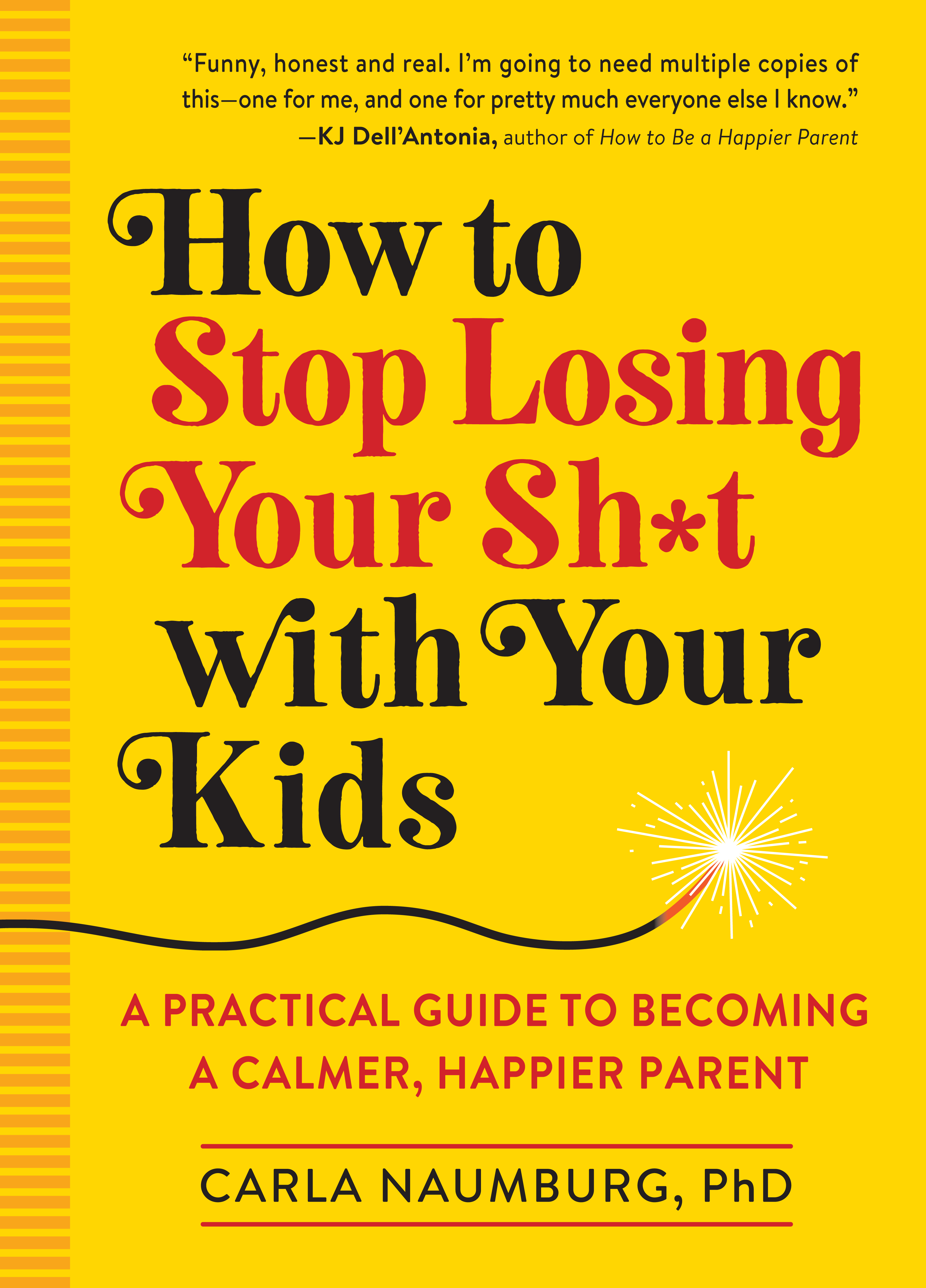
How to Stop Losing Your Sh*t with Your Kids: A Practical Guide to Becoming a Calmer, Happier Parent
Carla Naumburg
Publisher
Workman Publishing Company
Publication Date
8/20/2019
ISBN
9781523505425
Pages
192
Categories
About the Author

Carla Naumburg
Questions & Answers
Parents can manage emotional outbursts by:
- Understanding Triggers: Identify what sets off their reactions, like stress, lack of sleep, or specific child behaviors.
- Mindfulness and Self-awareness: Notice signs of escalating emotions and pause to breathe or reflect before reacting.
- Single-tasking: Focus on one task at a time to reduce stress and improve focus.
- Self-care: Prioritize sleep, exercise, and relaxation to maintain emotional balance.
- Building a Support System: Seek support from friends, family, or professionals to share experiences and reduce isolation.
- Self-compassion: Practice kindness towards oneself, acknowledging that parenting is challenging and imperfect.
- Recovery and Reconnection: After an outburst, apologize, discuss the situation, and learn from the experience to prevent future outbursts.
Common triggers for parental meltdowns include chronic exhaustion, multitasking, anxiety, smartphones, major life changes, and chronic stress. Parents can identify triggers by noticing their "tells," like anxious thoughts, physical tension, irritability, or cravings. To cope, they should practice single-tasking, get enough sleep, seek support, and practice self-compassion. They can also simplify their thoughts, manage stress, and find ways to disconnect from their phones. Recognizing and addressing these triggers can help parents manage their reactions and maintain a calmer, more effective parenting style.
Parents can incorporate self-care practices into their daily routines by prioritizing single-tasking, ensuring adequate sleep, seeking support, and practicing self-compassion. They should focus on one task at a time to reduce stress, aim for 7-9 hours of sleep per night, and seek support from friends, family, or professionals. Practicing self-compassion involves being kind to oneself, acknowledging the challenges of parenting, and offering understanding instead of judgment. Additionally, parents can engage in activities like exercise, meditation, and gratitude journaling to maintain emotional resilience and reduce the likelihood of losing their temper.
Self-awareness is crucial in preventing and managing parental meltdowns. It allows parents to recognize their triggers and emotional responses, enabling them to pause and choose a more effective response. To develop this skill:
- Observe Your Reactions: Pay attention to your feelings and physical reactions in stressful situations. Notice when you're getting triggered and what typically sets off your buttons.
- Reflect on Triggers: Understand the root causes of your triggers, which may be related to past experiences or current stressors.
- Practice Mindfulness: Engage in mindfulness exercises to stay present and grounded, such as deep breathing, meditation, or journaling.
- Seek Support: Share your experiences with friends, family, or professionals to gain perspective and learn coping strategies.
- Develop Coping Skills: Learn and practice techniques like self-compassion, problem-solving, and relaxation methods to manage stress and triggers.
- Set Boundaries: Establish clear boundaries for yourself and your children to reduce stress and maintain a healthy balance.
- Self-Compassion: Be kind to yourself during challenging times, acknowledging that parenting is difficult and that it's okay to make mistakes.
Parents can foster a positive and supportive environment for their children by:
- Modeling Emotional Regulation: Show children how to manage emotions through calm communication and self-care.
- Acknowledge Feelings: Validate children's emotions without judgment, helping them understand that it's normal to have ups and downs.
- Set Clear Boundaries: Establish consistent rules and consequences to provide a sense of security and predictability.
- Seek Support: Reach out to friends, family, or professionals for help when needed, to avoid overburdening the child.
- Practice Self-Compassion: Be kind to oneself, recognizing that parenting is challenging and mistakes are part of the journey.
- Encourage Independence: Allow children to develop autonomy and problem-solving skills, fostering their self-confidence.
- Create Routine: A structured daily routine can provide comfort and stability, especially during stressful times.
- Limit Exposure to Negative Influences: Monitor media and social interactions to ensure they are supportive and age-appropriate.